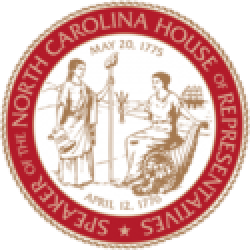Raleigh, N.C. – The North Carolina House of Representatives released highlights of its balanced budget proposal for the 2017-2018 biennium on Thursday, submitting a plan that supports successful government investment strategies contributing to revenue surpluses, rainy day reserves, rapid economic and population growth this decade.
The budget highlights released Thursday were provided to appropriations subcommittees for consideration and votes before the House’s full spending plan – including state employee salaries and benefits, further commitments to the savings reserves, disaster recovery allocations, tax cuts and other provisions – is released next week.
“As North Carolina families and businesses know, there’s a stark difference between wasteful spending and smart investing of their hard-earned money,” said House Speaker Tim Moore. “Budgeting taxpayer funds is no different, and the Republican-led House of Representatives has produced a far better return on investment with our budget strategy this decade compared to the failed policies of last decade.”
“Our state could simply spend the revenue surpluses, rainy day reserves and taxes we collected without any positive results or return on investment – governments do it all the time,” Moore continued. “North Carolina House Republicans have improved our state’s approach to budgeting to provide taxpayers with positive outcomes while returning billions in taxes back into the paychecks and pockets of our citizens.”
House Republicans have invested wisely this decade and rewarded taxpayers with a lower sales tax rate, lower income tax rates and lower taxes on businesses across North Carolina. The results:
- $447 million surplus in FY 2015
- $430 million surplus in FY 2016
- $581 million surplus in FY 2017
- $1.2 billion rainy day reserve
- $2.5 billion debt repaid
Last decade the Democrat-led General Assembly raised sales taxes in 2003, 2005, 2007 and 2009, and still dug a fiscal hole, including $2.5 billion in debt and hundreds of millions of dollars in budget deficits for programs like Medicaid, for Republicans to fix in 2011.
“Despite their never-ceasing commitment to raising taxes and spending every dime collected by the state last decade, Democrats left North Carolina in terrible shape with no savings reserve or financial plan to rebuild,” said Appropriations Committee Chairman Justin Burr (R-Stanly).
“A smart investment strategy requires hard choices,” Burr continued. “Rather than seeking to satisfy every agency request for more and more funding every year – rest assured they’ll be back for more next year – House lawmakers look ahead and fund critical needs to produce positive investments for North Carolina taxpayers and return savings into their pockets and paychecks.”
This Decade: Teacher pay raises every year since 2013
Last Decade: Teacher pay cuts in 2009 after lagging all decade
This Decade: Lower sales tax rates, lower income tax rates, lower corporate tax rates, billions in taxpayer savings.
Last Decade: Sales tax increase in 2003, 2005, 2007 and 2009, billions in higher taxes on North Carolinians.
“There will always be pressure to spend more in State Government,” said Appropriations Chairman Dean Arp (R-Union). “This includes the historic desire to shackle the taxpayers with more long-term debt that will lead to higher taxes in years ahead.”
“A key difference is the House prefers smart investments that produce results instead of wasteful spending that produce higher taxes, deficits and debt. We are creating jobs while living within our means, ensuring a fiscally sound state that enables our taxpayers to keep more of their hard-earned dollars.”
“House lawmakers continue to pursue a commonsense, conservative approach that is a paradigm shift in funding state government. Properly funding state government allows us to meet essential needs while living within our means, just as each of us does with our households,” Arp continued.
Economic Accolades for North Carolina 2016-2017
- North Carolina to post substantial budget surplus 3rd year in a row as estimated 31 states grapple with shortfalls. Tax Foundation May 2017
- North Carolina tourism generates record visitor spending in 2016. WRAL May 2017
- North Carolina ranks #1 in Site Selection’s Magazine’s Prosperity Cup, an index of economic drivers. Triangle Business Journal May 2017
- Unemployment drops in North Carolina, state adds 111,111 jobs over year. NC Department of Commerce April 2017
- North Carolina hotels set record high occupancy rates, room revenue growth doubles national average.VisitNC Lodging Report March 2017
- North Carolina excels in Fiscal Survey of States. National Association of State Budget Officers March 2017
- North Carolina ranked #1 in the United States for IT employment growth by Tech Association study.Triangle Business Journal February 2017
- Raleigh and Charlotte named #2 and #7 in “America’s Top Spots for Tech Jobs. Forbes August 2016
- North Carolina has had the country’s fastest-growing economy. Politifact April 2016
- By G.D.P., North Carolina had fastest growing large economy in the nation.’ Triangle Business Journal March 2016
“Taxpayer funds belong to the citizens who worked for them,” said Senior Appropriations Committee Chairman Nelson Dollar (R-Wake), “and they expect us to be good stewards of their hard-earned tax dollars just as they are with money for their families and businesses.”
“Our goal is to set the right priorities and ensure our citizens’ tax dollars are spent wisely in ways that will improve our schools, grow our economy and improve the quality of life for all North Carolinians,” Dollar continued.
“House Republicans have thought critically and planned ahead with investment strategies that produce real rresults that speak for themselves, allowing our state to fulfill its immense potential.”
Highlights of House Education Budget
- Fully funds K-12 enrollment growth.
- Raises the funding cap for Children with Disabilities
- Increases Textbooks and Digital Materials funding
- Provides additional funds to the Advanced Teaching Roles
- Provides funds to support juvenile literacy centers that serve court-involved or otherwise at-risk youth
- Provides funds to support experiential science learning programs for 5th-grade students.
- Provides funds for the Eastern NC STEM program, which is a summer residential STEM program for underserved students.
K-12 Special Provisions:
- Future Ready Students: Establishes business advisory councils that will assist school districts in providing CTE instruction, identify, economic and workforce development trends in the region, and advocate for strong local CTE programs.
- Expand CTE Competitive Grant Program
North Carolina Community College System Highlights:
- Career Coaches: Provides funding to support the expansion of the NC Works Career Coaches program, which places career coaches employed by local community colleges with partnering high schools.
- Start-Up Fund for High-Cost Workforce Programs: Provides funding to assist colleges with start-up costs for high-cost workforce training programs leading to employment in higher-paying and in-demand fields.
- Hurricane Matthew Hold-Harmless Reserve: Funds a reserve to offset enrollment declines at certain colleges impacted by Hurricane Matthew-related disruption.
- Apprenticeship NC: Provides for the transfer of the Apprenticeship program from the Department of Commerce to the NC Community College System. The program coordinates with employers to train and employ apprentices in order to mitigate skills gaps and meet critical workforce and labor market needs.
North Carolina Community College System Special Provisions:
- Establishes the High-Achieving Tuition Scholarship Program. Recent North Carolina resident high school graduates with an unweighted GPA of at least 3.5 meeting other eligibility criteria may receive scholarships covering the full cost of tuition at a community college for up to four semesters.
University of North Carolina System Highlights:
- Enrollment growth: Provides the necessary appropriations fully fund UNC’s projected enrollment growth.
- Research Opportunity Initiative: Increases funding for a competitive grant program that supports innovative research projects.
- Faculty Recruitment and Retention: Increases funding for faculty recruitment and retention at UNC institutions.
- ECU Brody School of Medicine Stabilization Funds: Provides additional funds to the Brody School of Medicine at East Carolina University
- NC A&T Doctoral Program: Provides $2.0 million recurring to support already-established doctoral programs in computer science, engineering, energy and environmental systems, education, and rehabilitation counseling at NC A&T.
University of North Carolina System Special Provisions:
- Establishes the Teaching Fellows program, a competitive forgivable loan program that will provide students interested in entering teaching in STEM or special education fields with up to $8,250 per year. The loans may be used for tuition, fees, and the cost of books. Loans made to Teaching Fellows may be forgiven if the recipient, for each year of loans received, serves either one year in a North Carolina public school identified as low-performing or two years in a North Carolina public school that is not identified as low-performing.
- Allows senior citizens to audit courses at the University of North Carolina or North Carolina Community Colleges for free, provided that they have permission from the instructor and there is space available in the course.
Highlights of House Justice and Public Safety Budget
- Provides funding an opioid misuse pilot project in Wilmington to assist overdose victims.
- Provides funding for Phase II of the Samarcand Training Academy: $2.3 million.
- Supports the requirements of the Forensic Sciences Act of 2011 with recurring funds
- Provides funding for additional deputy clerks positions, bringing most districts up to 95% of the workload formula target
- Provides funding for new assistant district attorney positions
- Expands the allowable uses of the Victims’ Compensation Fund to provide grief counseling for immediate family members
- Requires Indigent Defense Services to develop specific statewide standards for determining indigency for defendants
- Provides funding for additional State Highway Patrol troopers
- Provides funding for body-worn camera grants
- Provides additional funding for rape kit testing
- Provides funding for North Carolina National Guard members to have an additional day of active duty training for emergency and disaster response
Highlights of House Transportation Budget
- Provides funding to increase the maintenance budget.
- Provides funding to increase contract resurfacing.
- Provides funding to fully fund bridge preservation activities to extend bridge life and to reduce the number of bridges becoming deficient.
- Provides funding to fully funds State-maintained and city-maintained road construction needs adjacent to new, relocated, and expanded public schools.
- Provides funding for the State Infrastructure Bank to provide loans and other forms of financial assistance to governmental units to help finance the cost of transportation projects.
- Provides funding for capital improvement projects at the State’s 10 commercial airports in order to increase their economic competitiveness.
- Provides funding for the North Carolina State Ports Authority for the modernization of the Wilmington and Morehead City seaports.
- Provides increased funding to Ferry Operations.
- Provides funding to increase The Strategic Transportation Investments fund.
- Provides funding for multiple repairs and renovation projects, such as roof repairs and replacements and HVAC repairs and upgrades.
- Establishes a new fund for Mobility/Modernization projects that are high-impact and low-cost.
- Provides funding for Economic Development funds controlled by Secretaries of Transportation and Commerce for road projects related to business recruitments and expansions.
- Establishes a Megaproject Fund for projects of statewide or regional significance that exceed $200 million in total project cost.
- Establishes a Blue Ribbon Commission to study ways to address North Carolina’s transportation infrastructure needs and find new sources of revenue for DOT and for the Megaproject Fund.
- Authorizes the North Carolina State Ports Authority to spend existing funds for the dredging of approaches to State port facilities.
- Requires the Division of Motor Vehicles to purchase credit card terminals.
Highlights of House General Government Budget
Continuing to make the Workforce Housing Loan Program a priority by providing funding for each year for the development of low-income housing units around the State (through combination of receipts and appropriations),
Department of Military and Veterans Affairs
- Provides additional funding to assist communities in investment efforts to sustain and maintain NC’s military programs and activities.
- Scholarships for Children of War Veterans: Provides funding to increase the scholarship allowance for children of veterans.
Office of the State Controller
- Provides funding to the Community Living Housing Fund to help increase access to community-based housing for individuals with disabilities.
Highlights of House Health and Human Services Budget
- Provides funding to double the grant funding for community health centers, rural health centers, free clinics, and other health safety net providers.
- Provides funding for continued development of NC FAST including the Child Welfare case management system.
- Supports the ongoing operation, development and enhancement of the Controlled Substances Reporting System to automate reports, generate and deploy advanced analytics to improve prescribing practices and to identify unusual prescribing patterns.
Special Provisions:
- Provides funding for DHHS Competitive Grants for Boys and Girls Clubs and Big Brothers Big Sisters.
- Provides funding to increase the number of Pre-K slots. NC Pre-K slots will be increased by 2,300 in FY 2017-18 and 4,700 in FY 2018-19 over the number of FY 2016-17 slots. The total number of slots will be approximately 29,300 in FY 2017-18 and 31,700 in FY 2018-19. This will eliminate the current waiting list by FY 2018-19. (Current number of NC Pre-K slots is 27,000)
- Child Care Subsidy market rate increase: Provides funding to increase the market rate effective October 1, 2017 for infants through 2 year-olds in 3, 4 and 5-star centers and homes in Tier 3 counties to the recommended market rate.
- Funds resources to implement the Child Welfare Federal Program Improvement Plan required under the federal Child and Family Services Review.
- Increases the State/County Special Assistance rate.
- Provides funding to expand Nurse Family Partnership Program home visiting services.
- Provides funding for the smoking cessation programs: Quitline NC and You Quit Two Quit.
- Provides funding for tobacco prevention activities targeted to youth and people of childbearing age.
- Provides funding to address the structural budget deficit at the State Laboratory of Public Health.
- Drug overdose medication provides recurring funding to purchase opioid antagonists.
- Single Stream Funding defines the reduction amount for each LME/MCO for both recurring and nonrecurring reductions. The provision directs the Secretary to provide any recommended changes in these amounts to the JLOC for Health and Human Services by March 1, 2018 and directs the Department to begin a quarterly financial review of all LME/MCOs to identify vulnerable LME/MCOs.
- Purchase of psychiatric and facility based crisis beds with Dorothea Dix Property to increase inpatient behavioral health bed capacity for adults at 5 selected hospitals, Also funds a case management pilot program in Wake County.
Highlights of House Natural and Economic Resources Budget
- Provides funding for firefighting equipment for the Forest Service
- Provides funding for the Tobacco Trust Fund
- Provides funding for the Agricultural Development and Farmland Preservation Trust Fund.
- Provides funding for international marketing and food marketing
- Provides funding to keep the Linville River Nursery open
Highlights of House Commerce Budget
- Provides funding for a new Site and Building Development Fund
- Provides funding for tourism and business advertising
- Provides funding to Main Street Solutions and for rural grants.
- Provides funding for the One NC Small Business Fund, which provides technology grants.
- Provides funding to the Carolina Small Business Fund
Highlights of House Information Technology Budget
- Funds the ongoing operations and maintenance of the Department’s project management system and funds the creation of a data management plan for the Government Data Analytics Center (GDAC)
- Provides funding to replace an expiring federal grant that supported the expansion of a wireless broadband system for public safety personnel and the Broadband Infrastructure Office
- Increases the funding for GDAC by to pay for system infrastructure and operational improvements, as well as a risk and vulnerability study of state agencies


